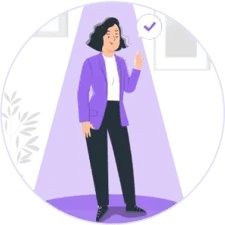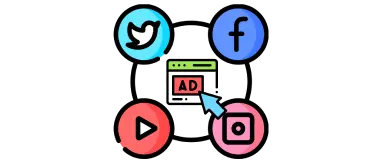Graphic Designing Course
Join our Graphic Designing Course and become a graphic designer professional in just 45 days! Our immersive course is designed to arm you with the most sought-after skills in designing, ranking it among the top graphic designing courses. Gain Over 10 Industry-Recognized Certifications and Learn from the Experts.

Industry
relevant courses

10+
E-books

20+
AI tools

10+
Certifications

Doubt
Sessions

6 months
Career Support
Sign up now to Gain New Skills
Unlock Your Future in Designing—
Fast Track Your Career with Our Comprehensive Course!
What You Will Learn In The Course?
- Understand fundamental design principles like typography, color theory, layout, and composition.
- Stay updated on the latest design trends and technologies.
- Master industry-standard design software such as Adobe Photoshop, Illustrator, and InDesign.
- Effectively convey messages through visual elements.
-
Design intuitive and
user-friendly interfaces.
- Develop original illustrations for print and digital media.
- Develop a professional portfolio showcasing your design skills.
- Design materials for print, such as brochures, flyers, and packaging.
Are you struggling to find the right graphic design course ?
Many courses promise to teach you graphic design, but most leave you with outdated knowledge, limited practical skills, and no real industry credentials.
-That’s where our 45-Day Graphic Design Course stands apart.
Common Course Selection Challenges
Overwhelming
Choices
There are countless graphic design courses out there, making it hard to choose the right one. Many are either too basic, too advanced, or not relevant to the current market needs.
Lack of
Practical Skills
Most courses focus on theory without providing hands-on experience, leaving you unprepared for real-world challenges.
Time
Constraints
You want to upskill quickly but don’t have months to commit to a long, drawn-out course.
No Recognized
Certification
Without industry-recognized certifications, your qualifications might not hold weight with employers or clients.
Outdated
Content
The graphic design landscape changes rapidly, and many courses fail to keep up, teaching outdated techniques and tools that no longer work.
Who would benefit from this course?
Aspiring Graphic designers

Aspiring Designers who want to create an impact in the digital world
Working Professionals

Working professionals looking for a career advancement or to switch to Graphic designing
Freelancers

Freelancers looking to strengthen their designing skill sets
Business Owners

Business Owners open to mastering performance designing skills for their business
What's in it for you?
Become job-ready with all the knowledge and tools you need to launch your career.

Industry
Relevant courses

10+
E-books

20+
AI tools

Doubt
Session

6 months career support

10+
Certifications
Know your Mentor

Founder-
The bleu tech

5+ years Marketing Experience

Data-Driven Marketing

Multi-Channel & Strategic Expertise
Meet Your Mentor, a seasoned Digital Marketing Strategist. With a strong technical background and a passion for data-driven results, he has a proven track record of optimizing marketing campaigns and driving business growth. As your mentor, he’ll guide you through the intricacies of digital marketing, helping you develop the skills and knowledge needed to succeed in this dynamic field.
The most in-demand skills in a single curriculum!
Immerse yourself in the most in-demand tools and technologies





Artistic people can succeed in the field of graphic design. Graphic design uses visual elements to communicate a brand’s story, ideas, or messages, so being an efficient communicator is essential. Graphic design is also a marketing tool, so being empathetic is also vital. Graphic designers must understand how their target audience feels, what problems they’re facing, and what visual elements they can embrace. Relatedly, graphic designers should be adept at problem-solving. Not only should graphic designers be able to understand how to reach their target audience, but they must be able to understand how their design assets fit with a particular project’s end goal. Finally, graphic designers should be patient and open to change. Graphic designers receive plenty of feedback and opportunities for improvement, allowing them to become more successful.
Graphic designers must have an endless supply of creativity to constantly develop new and exciting ideas to create innovative, engaging visual elements. Graphic designers should also be adept in storytelling and problem-solving to determine the needs of their target audience and create graphic assets that tell a story to get them to take a particular action. Branding is an essential skill for graphic designers to create visual elements specific to a brand. There are technical skills that can help a graphic designer thrive. Typography, for example, is one of those skills. If graphic designers understand how fonts are made and can pick the right fonts for a project, they can excel. Other essential technical skills graphic designers should have include coding, interactive media, and Adobe creative software (Illustrator, InDesign, and Photoshop).
Fortunately, it has become a lot more affordable to purchase all of the necessary equipment and software to become a graphic designer. First of all, make sure you have a decent laptop or desktop. I recommend at least 8GB of RAM to run the latest popular design software. You will need to have access to design software that consists of the following three things: a Photo Editing Application, a Vector Program, and a Layout Program. There is a monthly subscription from Adobe for the Adobe Creative Cloud that gives you access to everything you need. Many alternative design softwares are less expensive and sometimes even free. Outside of a good solid computer (desktop or laptop) and access to software, the only other thing you need is your passion for learning design theory foundations, giving you the ability to produce relevant, in-demand design projects.
The short answer is yes. It depends on your experience and average client size, too. If you can book a full-time client load you can easily exceed the average salary for a junior graphic designer. That is because you have more flexibility in what you can charge and the services you can offer. Freelancing gives you a chance to get paid for being fast, excellent, and efficient. With salaried positions, that is not always the case. You can also have the option to charge fixed rates (as opposed to hourly wages) which gives you a chance to make more money in less time once you get a good workflow going. Freelancing can be very rewarding because of the limitless upward mobility when it comes to new money-making client opportunities.
There are many roles available within the graphic design field, and they all differ in skills, experience, and interests. If you have little or no experience, you could start your career with either a graphic design internship or a junior graphic designer position. Once you have gained more experience in the profession, you can seek senior-level roles, such as senior graphic designer, senior manager of graphic design, art director, or creative director. Those who have specific graphic design skills and/or interests can apply for roles like photo editor, web designer, multimedia designer, publication designer, user experience (UX) designer, and user interface (UI) designer.
Graphic design is such a unique craft as it combines both the marketing side of business and the creativity of art. A graphic designer’s main job is to effectively communicate to the viewer the company’s goals, wishes, voice and narrative through the use of both print and digital projects. These projects can include logo design, letterhead, social media graphics, website graphics, posters, flyers, signage, menus, editorial content and more. Graphic designers are involved in the marketing process of a company and help to make marketing messages seem unified through the use of color, typography, photos and layout.
Sign up now to Gain New Skills
Don’t Waste Time on Subpar Courses
Join the Most Comprehensive, Industry-Relevant Designing Course Today!




